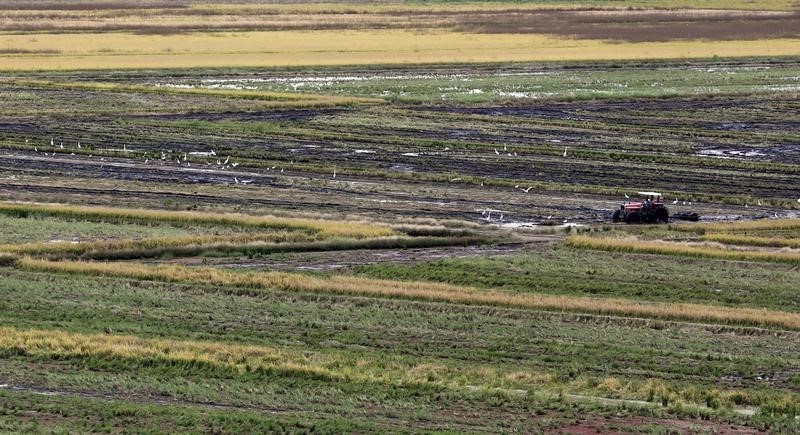By Gustavo Bonato and Lisandra Paraguassu
SAO PAULO (Reuters) – The imminent lifting of Brazil’s limits on foreign land ownership is expected to unleash investments, principally by large funds in search of long-term returns, and reignite a slice of the stagnant real estate market. The government of President Luiz Inacio Lula da Silva shocked investors in 2010 when he put the breaks on foreigners’ purchase of large pieces of agricultural land. It cited concerns over plans by Chinese investors to buy state-sized tracts of land the government said would threaten national sovereignty. With the impeachment of Lula’s hand-picked successor, suspended President Dilma Rousseff, Brazil is under interim President Michel Temer, who hopes that new foreign investment into farm land will breathe life into a moribund economy. “We know, there have been consultations with our company, that many investors are waiting with their fingers on the trigger,” said Jose Vicente Ferraz, director of analysts Informa Economics FNP. “A few months after the rules change, these investments should start to gel.” A high-level source in the government said on Thursday it plans to ease farm land ownership restrictions in a package of measures in the coming months. Some criteria will be included in the measures to mitigate undue speculation in farm land, the source said. Since 2010, foreign investors have had to form partnerships with Brazilian companies and accept minority stakes if they wanted to invest in land.
“Some funds, investors and families don’t want to be tied up in partnership with a Brazilian firm. So, they are waiting for a loosening of legislation,” Ferraz said.
He said new investors from all over the world want to buy undeveloped acreage and turn it into productive farm land to sell, which promises superior gains compared with simple appreciation in the value of a piece of land. Brazil leads the world in sugar, coffee, orange juice, beef and poultry exports. It is also a major player in soybeans and corn. It will need to expand planted area if it wants to keep up with demand for food from the world’s growing population. Facing the uncertainties that come with negative interest rates in important economies trapped in slow growth, asset and wealth management funds are eager to find safer bets, Chief Executive of land management firm BrasilAgro “You have pension funds for example that are worried about guaranteeing future value and are seeking long-term investments like land,” he said.
Segments that will benefit from the re-opening of foreign investment into land are timber and pulp and paper. They require large volumes of capital for long-term investments, which dried up here after 2010. “It’s an industry of great scale. You need a free and open market. We have multinational firms with repressed demand and national companies with distorted market valuations,” said Elizabeth Carvalhaes, executive president of the Brazilian Timber Industry Association. The depreciation of Brazil’s real against the dollar over the past year and the tight credit environment will also grease the wheels of land sales for foreign investors, analysts said.
The region most likely to be the focus of investment in the future is the so-called Matopiba, which stands for the fast growing grain belt in the northeastern states of Maranhao, Tocantins, Piaui and Bahia. Fabio Silveira, associate director at MacroSector consultants, said new railroad projects such as the Norte-Sul extension and the new grains terminal Sao Luis, Maranhao would help foment investment in the region. “This region is the most important for investment in Brazil today and a good part of this investment could be from abroad,” he said.
(Writing by Reese Ewing; editing by Grant McCool)
Change in law to start avalanche of investment in Brazil land

By Gustavo Bonato and Lisandra Paraguassu
















